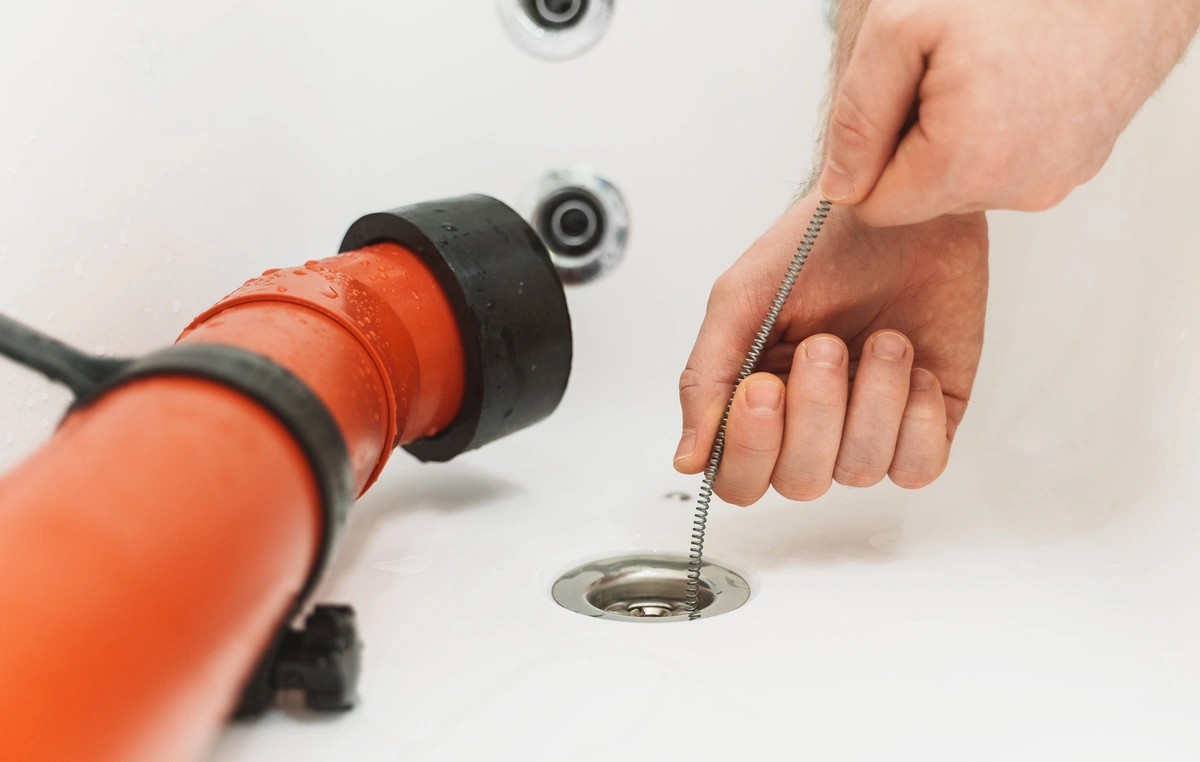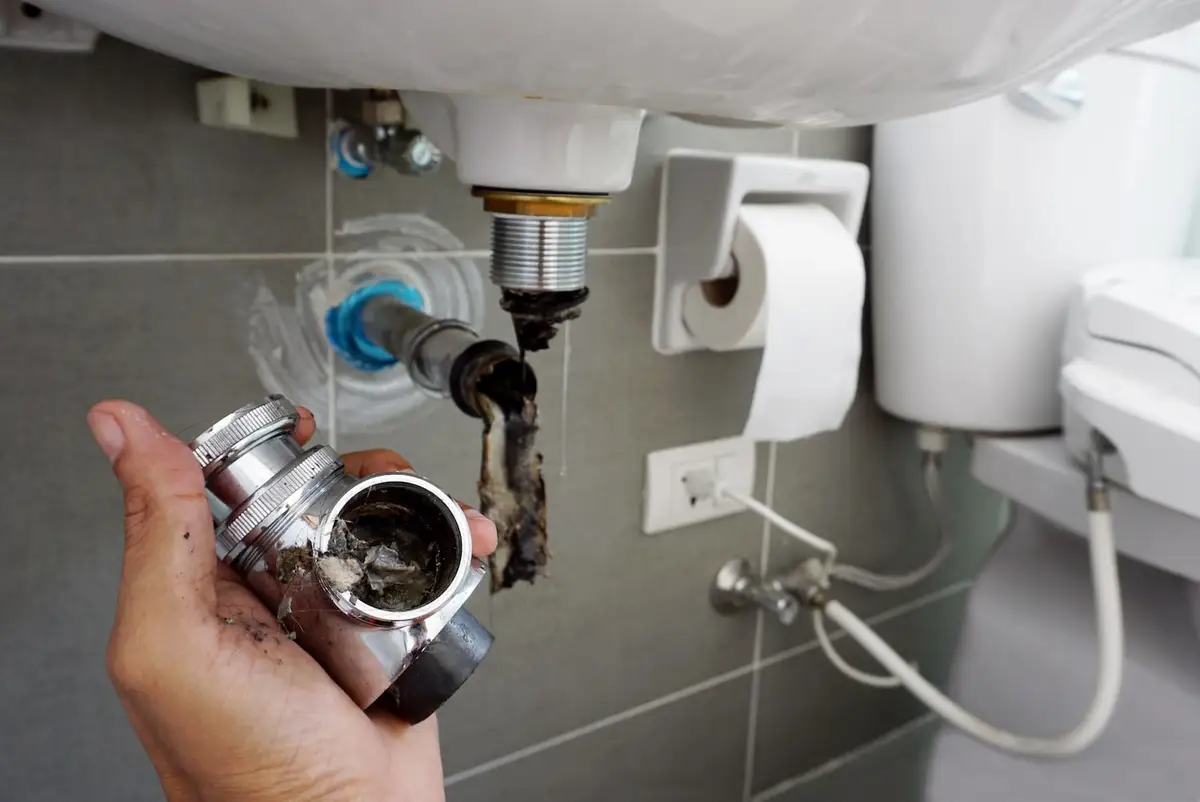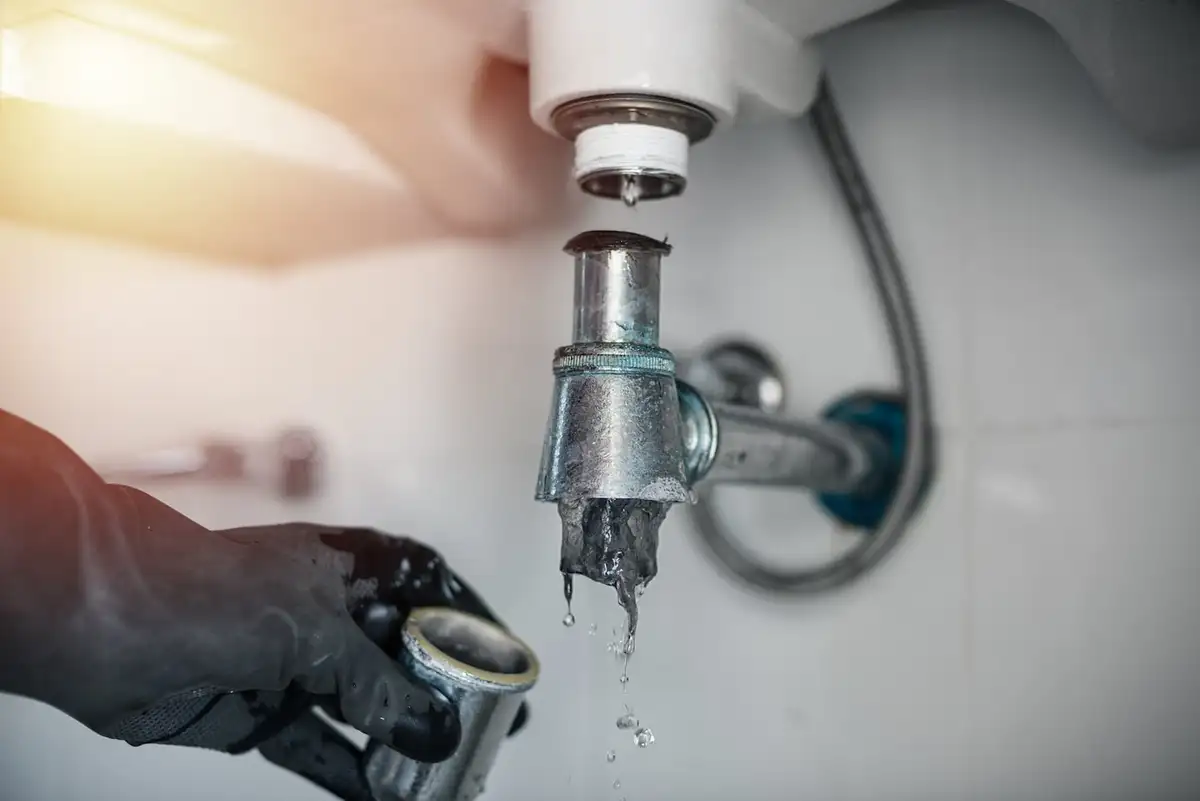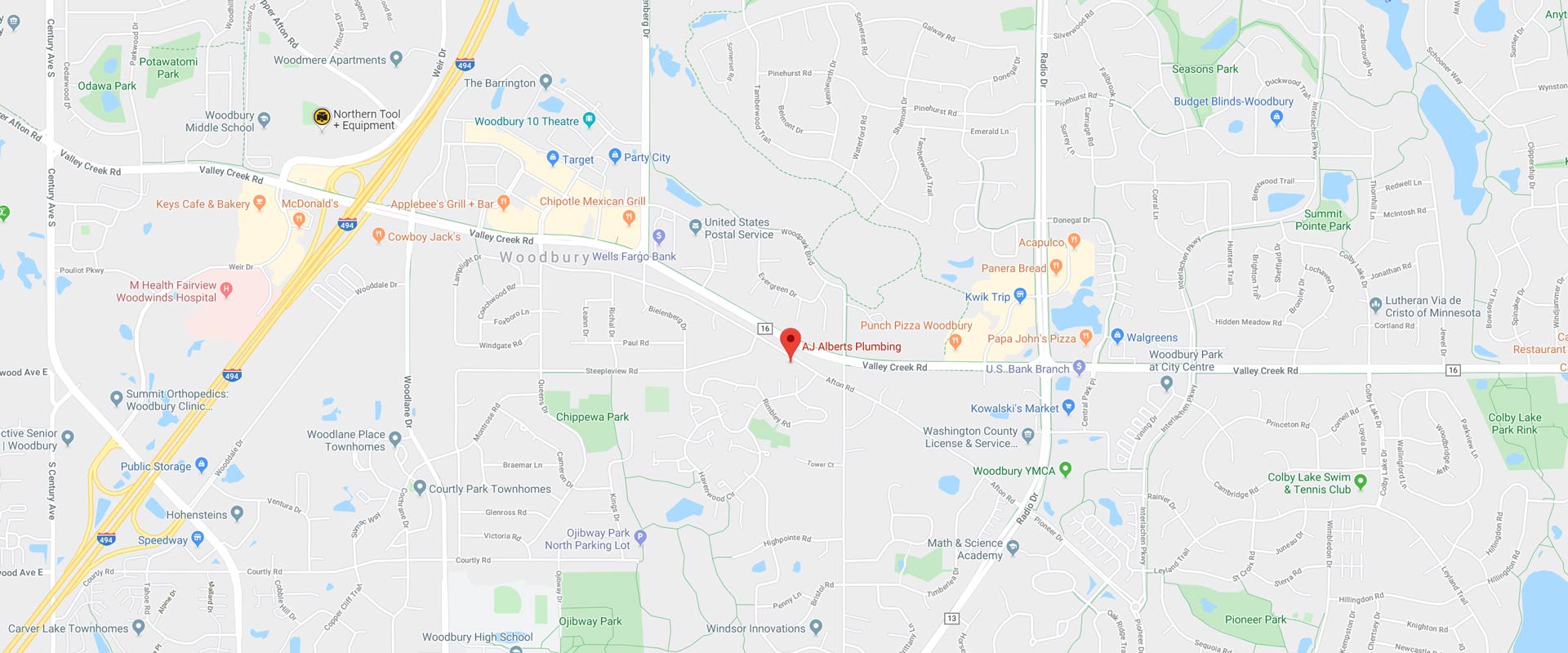Have you ever found yourself sending some items down the garbage disposal just to have to reach your hand into a few inches of gross, greasy, food-filled water to fish the bigger chunks out of your clogged kitchen sink? Or maybe you’re used to stepping into several inches of standing water every time you turn on your shower. Bathroom plumbing problems and kitchen plumbing problems are never fun, either. 🤢
If you’ve been wondering “why does my drain keep clogging?” There are several possible reasons why you might keep experiencing frequently clogged drains in different areas of your home, such as:
- Showers and bathtubs; 🛀🏻
- Kitchen sinks; 🚰
- Garbage disposal units; 🗑
- Dishwashers; 🍽
- Laundry and washing machine systems; 🧺
- And your bathroom toilet; 🚽
But don’t worry — we’ve taken the time to outline solutions to these all too common kitchen and bathroom plumbing problems, so homeowners don’t have to. With that said, keep reading to learn how to mitigate the issue and avoid more costly plumbing repairs down the line.
So… Why Does My Drain Keep Clogging?
Whether you own a home or business or currently rent the property you reside in, there’s a high probability that you’ve experienced plumbing issues, including clogged drains and drain pipes. If this is a persistent problem in your household, there are likely a few different things happening, and we’re here to help you address them the right way.
Problem #1: Excessive Debris Buildup in Your Drain Pipe ❌
One of the most common causes of a main drain clog, whether in your kitchen or bathroom, is too much debris building up in your drain pipe. There’s no better way to describe this buildup than “gunk,” which accumulates in the drain pipe of sinks or showers and tubs. That’s because hair, dead skin, small food scraps, and other debris binds to soap scum in your pipes to create the blockage. Fortunately, it’s a fairly easy fix.
The Solution ✅
The best way to stop your main drain line from clogging is to regularly remove any stuck debris from the drain trap. That might mean scooping out someone’s hair with a fork or finger, using a snake to dislodge hair clumps and dead skin, or pouring baking soda down the drain pipe to scrape up and remove lingering soap scum.
Smaller food waste can also get stuck, such as coffee grounds or cut-up orange peels, so it’s important to avoid putting those items down your sink disposal at all costs.
Problem #2: Clogged Toilet ❌
Another persistent issue our customers bring to light is a clogged toilet. Though you might believe that this is only due to too much toilet paper going down at once, there are plenty of other items that shouldn’t be flushed, such as:
- Feminine products
- Baby wipes and diapers
- Paper towels, tissues, or table napkins
- Large food scraps (fruit peels, coffee grounds, etc.)
- Q-tips and cotton balls
- Medicine or prescription pills
Although your city sewer line is well equipped to handle a broad range of scraps and waste, there are still precautions you can take to avoid clogs. Consult with your plumber to find out which foods, drinks, and chemicals can go down your drain pipes without a problem.
The Solution ✅
Of course, if you’re experiencing a clogged toilet due to too much toilet paper or personal waste, a plunger is the proper way to fix the issue. Simply place the plunger in your toilet or a sink with a few inches of water, and start pumping away. The suction created by the plunger in the sink or toilet should be enough to dislodge any stuck toilet paper, food, or other debris. And if it doesn’t, bleach and baking soda can also come in handy — or just hire a professional plumber!
Problem #3: Kitchen Sink Drain Clogs ❌
Additionally, many homeowners experience drain clogs outside of the bathroom. Your kitchen sink and garbage disposal can also become susceptible to clogs if the main drain pipe accumulates too many scraps and food-related items, including:
- Kitchen grease (oil, fat, etc.) 🛢
- Bones 🦴
- Ground coffee ☕️
- Fruit peels 🍊
- Pasta 🍝
- Peanut butter, nuts, and oats 🥜
- Eggshells 🥚
- Onion skins 🧅
- Fibrous veggies (pumpkin, asparagus, sprouts, broccoli, cabbage, etc.) 🥦
- Potato peels 🥔
- Fruit pits 🍑
- Corn husks 🌽
All the items listed above are either disposable or compostable at home, so you can choose how to dispose of them. No matter what, just remember that these items are a no-go going down your disposal unit.
The Solution ✅
If you find your kitchen sink stuck with the items we listed, you’ll likely have to get your hands dirty to dislodge the items. Turn off the power to your sink disposal, remove whatever’s stuck, and unclog the drain catch with your fingers as best as possible before putting the piece back in place.
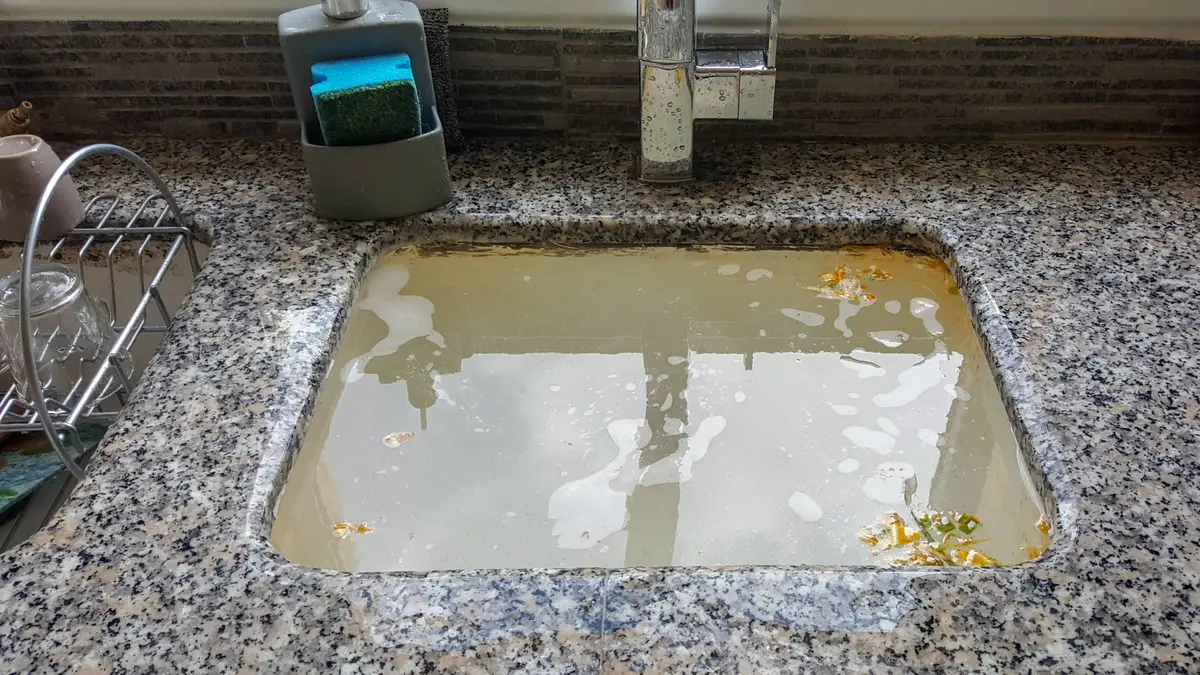
Problem #4: Damaged Drain Line ❌
Of course, you could also be dealing with broken, dislodged, or burst drain pipes. This might be due to improper installation, poor maintenance, environmental factors like fluctuating temperatures, or — surprise! — it can even indicate tree roots growing into your plumbing system, which can be challenging to sort out.
The Solution ✅
Whether you notice an obvious water leak or are concerned about lingering moisture in various areas of your home, you must address your drain lines first and foremost. Contact a plumber you trust to guarantee that your older pipes are working properly. Otherwise, you may need to replace them if the problem is too far gone. In those cases, it’s best to reach out to a reliable plumbing company or contractor in your area who can eliminate such issues.
Problem #4: Improper Venting ❌
One other problem some homeowners encounter is foul smells from their drain pipes. That can be an issue in either your kitchen or bathroom, as well as any basements and spare guest suites.
Typically, unpleasant odors from your pipes indicate that excess buildup of gunk and goo we already talked about, but other times the issue could be far more extensive. Sometimes, you might have a burst pipe or raw sewage leaking around your main drain.
The Solution ✅
Smells coming from your main drain pipes are probably only due to some built-up debris, so you can DIY the solution with some simple household cleaning products, a concoction of baking soda, vinegar, and boiling water, or with a basic, store-bought drain snake. (Shop online for the best plumber’s drain snakes available with this list in hand for help.)
However, if the problem persists for weeks, even after a thorough cleaning, it might be a more significant underlying problem that needs to be addressed with help from a professional plumber.
Consequences of Unaddressed Drain Clogs
Leaving clogs in your kitchen and bathroom sinks, laundry room, or bathtub and shower can lead to even further issues down the line, including:
- Low water pressure or poor water flow
- Slow hot water in kitchen sinks, bathroom sinks, and shower or bathtub
- Drain pipe corrosion or displacement
- Wastewater leaks, backups, and overflows
- High water usage (increased utility costs)
- Frequent drain clogs
- Basement or bathroom flooding
- More extensive (and expensive) repairs in the future
All of these problems related to clogging can wreak havoc on your daily schedule. Forget about washing your hair before work or making breakfast for the kids. If you can’t drain the sink or flush the toilet, what’s the point? That’s why you need to take steps to prevent clogs and continue to perform regular maintenance on your plumbing to ensure everything is working properly at all times.
Preventative Measures: Importance of Regular Plumbing Maintenance
While there are many ways that the occupants of your home can create clogs, you can also take many measures to prevent them. That includes:
- Scheduling yearly inspections
- Flushing your hot water heater
- Testing drainage speeds and water pressure
- Replacing toilet parts
- Inspecting tiles and caulking
- Cleaning out your septic tank
- Checking for leaks and loose hoses
- Using a plumber’s snake on your shower and sink drains
- Reviewing your monthly water usage
- Avoiding flushing or pouring problem items down any drains
Taking good care of your plumbing pipes and every drain in your home is essential to keep further problems at bay. You might even have to keep an eye out for tree roots and other unexpected impacts on your plumbing system. Luckily, there are many different tactics homeowners can deploy to mitigate drainage issues. Still, ultimately, your best bet is to hire an experienced plumber to address each and every problem the right way.
We’re Always Here to Help Keep Drains Clear
If fixing a clogged drain is becoming a common part of your daily schedule, you don’t want to put off repairs. The most reliable way to deal with a malfunctioning drain system is to partner with a trusted professional plumber. And that’s where we come in!
AJ Alberts is a seasoned plumbing company that proudly serves Woodbury and the surrounding Twin Cities area with expert solutions for any kind of plumbing issue homeowners may experience. Whether you have trouble flushing toilet paper or can’t get water down the drain of your kitchen garbage disposal, you’re guaranteed to get the help you need from our dedicated team.
Contact us to beat your current blockage and keep things clear down the line with our durable and effective drain cleaning services. Let’s get started today!

